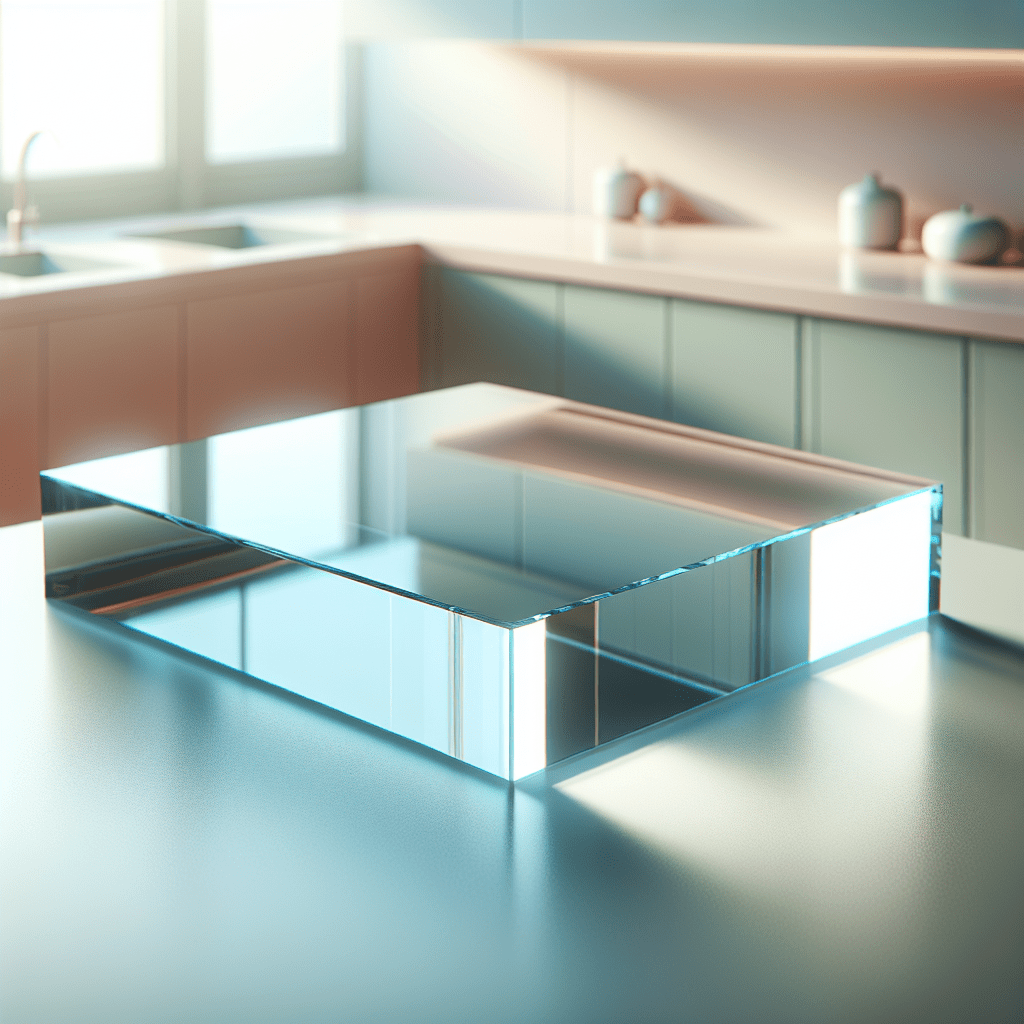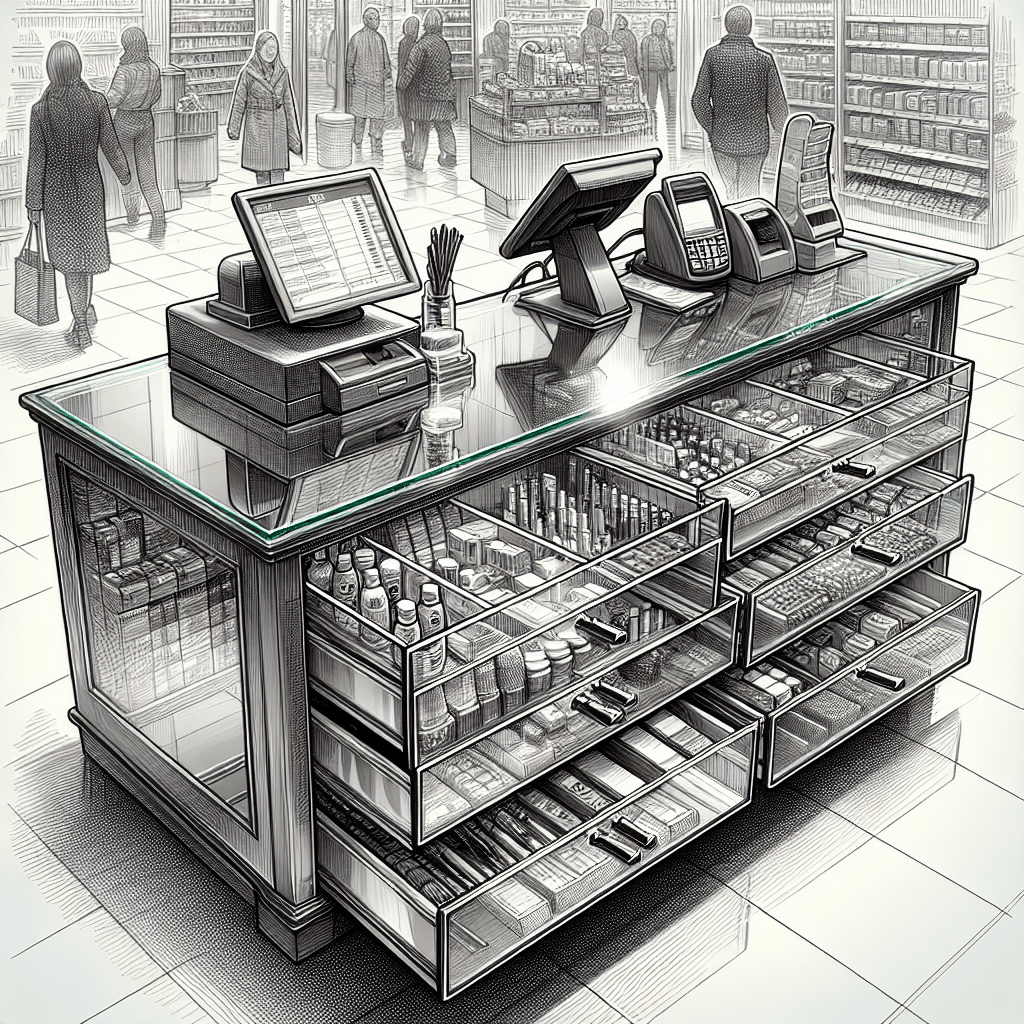Glass countertops have surged in popularity due to their sleek, modern appearance and the unique aesthetic they bring to kitchens and bathrooms. Their transparent nature allows for creative lighting solutions, and they can make a space feel more open and airy. However, while the visual appeal of glass countertops is undeniable, it’s essential to consider the potential downsides before making a decision.
Understanding the disadvantages of glass countertops can help homeowners make a more informed choice. While they may seem like the perfect addition to a contemporary home, there are several factors that could make them less than ideal for some. From durability concerns to maintenance challenges, it’s important to weigh these aspects carefully.
In this discussion, we will delve into the various disadvantages of glass countertops, providing a comprehensive overview to help you determine if they are the right fit for your home. For more information on glass counter-1 options, you can visit our detailed guide [here](https://mywebtuts.com).

Fragility and Durability
Susceptibility to Cracks and Chips from Heavy Impacts
One of the primary concerns with glass countertops is their susceptibility to damage from heavy impacts. Unlike more resilient materials such as granite or quartz, glass can crack or chip relatively easily. This fragility means that everyday kitchen activities, such as accidentally dropping a heavy pot or pan, can result in significant damage. Even though tempered glass is used to enhance durability, it is not entirely immune to these issues. The edges of glass countertops are particularly vulnerable, and a minor impact can lead to unsightly chips that are difficult to repair.
Moreover, the risk of damage is not limited to heavy impacts. Glass countertops can also suffer from minor scratches and abrasions over time. These small imperfections can accumulate, leading to a worn and less attractive surface. While some scratches can be polished out, deeper ones may be permanent, detracting from the overall aesthetic appeal of the countertop.
High Replacement Costs Due to the Fragile Nature of Glass
The cost implications of maintaining a glass countertop can be significant. Due to the fragile nature of glass, any substantial damage often necessitates a full replacement rather than a simple repair. This can be a costly endeavor, especially when compared to other countertop materials that can be more easily repaired. The high replacement costs are a crucial factor to consider when evaluating the long-term viability of glass countertops.
Additionally, the installation process for glass countertops can be more complex and expensive. Specialized skills and tools are required to ensure a proper fit and finish, which can drive up the initial installation costs. This is an important consideration for homeowners who are budget-conscious or looking to maximize the return on their investment.
In summary, while glass countertops offer a unique and modern aesthetic, their fragility and the associated high replacement costs are significant disadvantages. These factors make it essential to carefully consider whether a glass countertop is the right choice for your home, especially if you anticipate heavy use or have a busy household.

Maintenance Issues
Difficulties in Keeping Glass Countertops Free of Smudges and Fingerprints
One of the most common complaints about glass countertops is the difficulty in maintaining a pristine, smudge-free surface. Glass, by its very nature, tends to show every fingerprint, smudge, and streak, making it challenging to keep clean. This is particularly problematic in high-traffic areas such as kitchens and bathrooms, where countertops are frequently used and touched. The constant need to wipe down the surface can become a tedious and time-consuming task for homeowners.
Moreover, the cleaning process itself requires special attention. While a simple wipe with a damp cloth might suffice for other materials, glass countertops often need specific cleaning solutions to avoid streaks and achieve a spotless finish. Using the wrong type of cleaner can leave behind residue or even damage the surface over time. This adds an extra layer of complexity to the maintenance routine, which can be a significant drawback for those looking for low-maintenance options.
Potential for Visible Water Stains and Scratches, Requiring Regular Upkeep
In addition to smudges and fingerprints, glass countertops are prone to visible water stains and scratches. Water stains can be particularly noticeable on glass surfaces, detracting from their sleek and modern appearance. These stains often require immediate attention to prevent them from becoming permanent, necessitating frequent cleaning and drying of the countertop.
Scratches are another concern. While glass countertops are made from tempered glass to enhance durability, they are still susceptible to scratches from everyday use. Cutting directly on the surface, dragging heavy objects, or even placing rough-bottomed items can leave unsightly marks. Over time, these scratches can accumulate, making the countertop look worn and less appealing. Regular upkeep, including polishing and careful handling, is essential to maintain the countertop’s appearance.
Furthermore, the maintenance of glass countertops extends beyond just cleaning. Homeowners must be vigilant about using cutting boards, trivets, and coasters to protect the surface from potential damage. This level of care and attention can be burdensome, especially for those who prefer a more carefree approach to kitchen and bathroom maintenance.
In conclusion, while glass countertops offer a unique and stylish look, the maintenance issues associated with them are significant. The constant battle against smudges, fingerprints, water stains, and scratches can be overwhelming, requiring a level of upkeep that may not be suitable for everyone. For those who value ease of maintenance, alternative materials might be a more practical choice.

Cost Considerations
Higher Initial Expense Compared to Other Countertop Materials
One of the most significant disadvantages of glass countertops is their higher initial expense compared to other materials. Glass countertops are often considered a luxury item, and their price reflects this status. The cost of manufacturing, cutting, and tempering glass to create a durable and aesthetically pleasing countertop is considerably higher than that of more common materials like laminate, wood, or even some types of stone.
The installation process also contributes to the overall expense. Installing a glass countertop requires specialized skills and tools to ensure a perfect fit and finish. This often means hiring professionals who are experienced in working with glass, which can drive up labor costs. Additionally, the transportation of glass countertops must be handled with extreme care to prevent damage, adding another layer of cost.
For homeowners on a budget, the high initial expense of glass countertops can be a significant deterrent. While the unique look and modern appeal of a glass kitchen counter or glass bar counter might be tempting, it’s essential to weigh these benefits against the financial investment required. In many cases, more affordable materials can offer a similar aesthetic without the hefty price tag.
Additional Costs Associated with Specialized Cleaning Products and Maintenance
Beyond the initial expense, glass countertops come with ongoing costs related to their maintenance. As previously mentioned, keeping a glass countertop free of smudges, fingerprints, and water stains requires specific cleaning products. These specialized cleaners are often more expensive than standard household cleaning supplies, adding to the long-term cost of maintaining a glass countertop.
Moreover, the need for regular upkeep to prevent scratches and other damage can also incur additional expenses. For instance, homeowners might need to invest in high-quality cutting boards, trivets, and coasters to protect the glass counter surface. Over time, these costs can add up, making glass countertops a more expensive option in the long run.
In some cases, homeowners might also need to budget for professional cleaning or polishing services to keep their glass countertops looking their best. While these services can help maintain the countertop’s appearance, they represent an ongoing financial commitment that should be considered when evaluating the overall cost of glass countertops.
In summary, the cost considerations associated with glass countertops are a significant factor to keep in mind. The higher initial expense, combined with the ongoing costs of specialized cleaning products and maintenance, can make glass countertops a less practical choice for budget-conscious homeowners. While the aesthetic appeal of a glass counter display or glass counter unit is undeniable, it’s crucial to consider whether the financial investment aligns with your long-term goals and budget.

Conclusion
Recapping the major disadvantages of glass countertops, it’s clear that while they offer a unique and modern aesthetic, they come with significant drawbacks. The fragility of glass countertops is a primary concern. Their susceptibility to cracks, chips, and scratches from everyday use makes them less durable than other materials. This fragility not only affects the longevity of the countertop but also leads to high replacement costs, as substantial damage often necessitates a full replacement rather than a simple repair.
Maintenance issues further complicate the appeal of glass countertops. Keeping them free of smudges, fingerprints, and water stains requires constant attention and specialized cleaning products. The need for regular upkeep to prevent visible scratches and maintain a pristine appearance can be burdensome. This level of maintenance is a significant consideration for homeowners who prefer low-maintenance options for their kitchens and bathrooms.
Cost considerations add another layer of complexity. The higher initial expense of glass countertops, combined with the ongoing costs of specialized cleaning products and maintenance, can make them a less practical choice for budget-conscious homeowners. The financial investment required for glass countertops is substantial, and it’s essential to weigh this against the benefits they offer.
Given these disadvantages, it’s crucial to carefully consider whether glass countertops are the right choice for your home. While their aesthetic appeal is undeniable, the fragility, maintenance challenges, and cost implications are significant factors that should not be overlooked. Making an informed decision requires a thorough understanding of these drawbacks and a realistic assessment of whether the benefits of glass countertops align with your long-term goals and budget.
In conclusion, glass countertops can be a stunning addition to any home, but they come with notable disadvantages that must be carefully weighed. By considering the fragility, maintenance requirements, and cost implications, homeowners can make a more informed decision about whether glass countertops are the right investment for their space. For those who prioritize durability, ease of maintenance, and cost-effectiveness, alternative materials may offer a more practical solution.
Leave a Reply